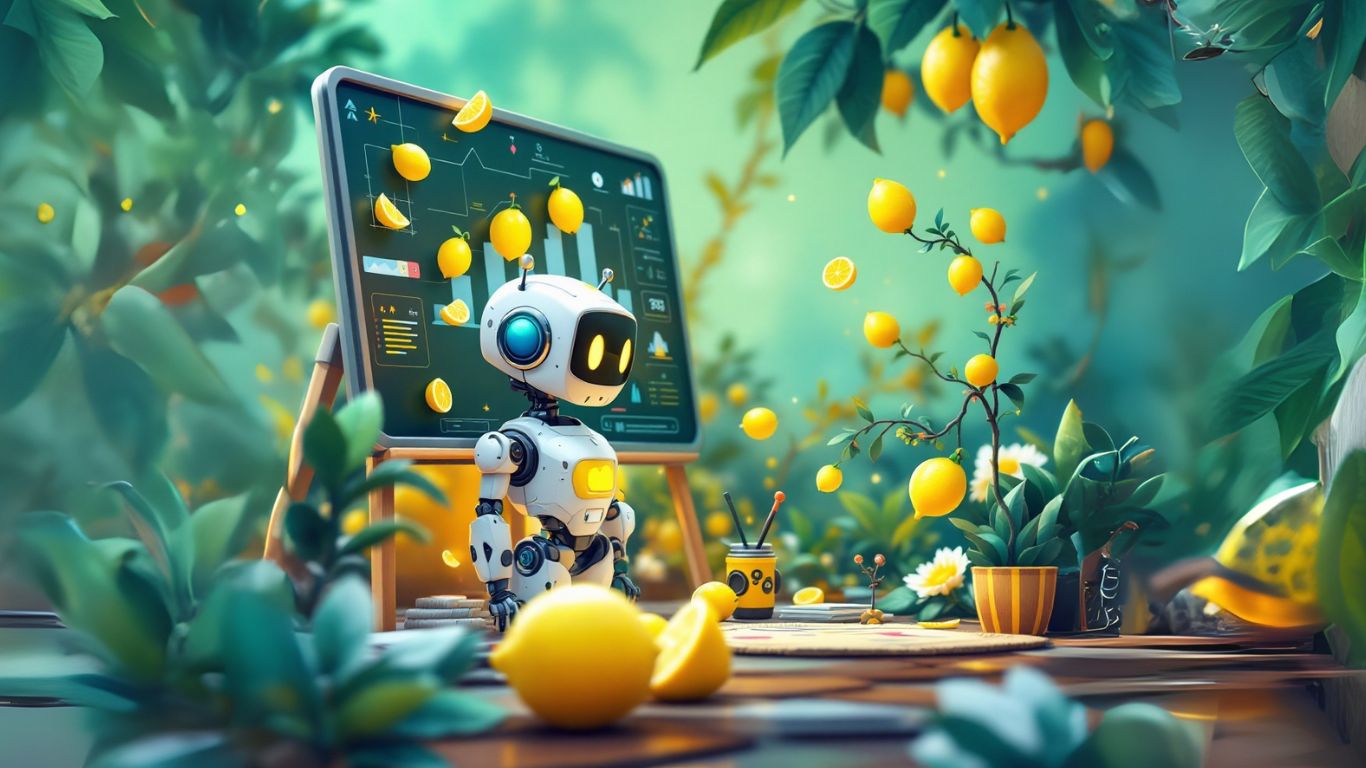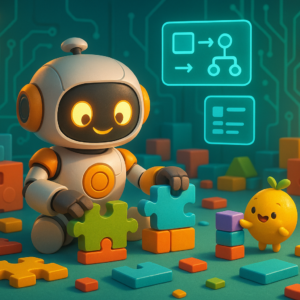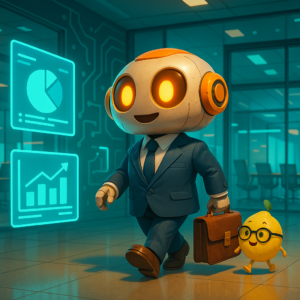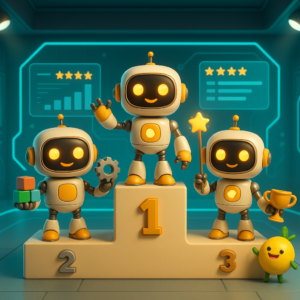
The world is full of AI talk, and it’s easy to get lost in a sea of terms like chatbot, GPT, assistant, and now agent. At first glance they sound interchangeable, but they actually serve very different purposes. Think of it like making a meal. You’ve got a microwave, a powerful food processor, a personal chef you can train, and finally a head chef who can run the whole kitchen. Each is useful in its own way, but only one can truly transform the way you eat, and the way your business runs.
Let’s slice through the confusion.
The Classic AI Chatbot: Your Trusty Microwave
An AI chatbot is the simplest of the bunch. It’s the microwave sitting in the corner of your kitchen and it’s quick, convenient, and great for reheating the same meal again and again. These bots are built on fixed scripts or FAQs. They’re designed to pop up in the corner of a website and answer a handful of predictable questions, things like “What are your business hours?” or “Where’s my order?”
Chatbots are perfect for simple, repetitive support. But like a microwave, they’re limited. They don’t invent new recipes, they don’t adapt to unusual requests, and they can’t step outside their pre-programmed menu. Ask them something unexpected, and you’ll often get the dreaded “I don’t understand.” Helpful, yes, but only in very small doses.
The GPT or LLM: The Powerful Food Processor
GPT stands for Generative Pre-trained Transformer. That’s a mouthful, so let’s call it what it is: the raw engine powering modern AI. A GPT, or more broadly a large language model (LLM), is like a supercharged food processor. It has immense power and versatility. You can chop, dice, blend, or puree almost anything you throw into it.
Companies like OpenAI, Anthropic, and Google build these models. They’re astonishingly clever, trained on vast swathes of the internet, and capable of generating human-like text at lightning speed. But on their own, GPTs aren’t a business tool. They don’t know your company, they don’t remember your customers, and they start every conversation from scratch.
That’s the catch. To make a GPT truly useful, you’d need to wire it up through APIs, connect it to your systems, and layer on memory and context. Without that, it’s raw horsepower with no steering wheel and it’s powerful but impractical.
The Custom GPT: A Food Processor Attachment
You may have seen “Custom GPTs” in OpenAI’s marketplace. These are like special attachments for your food processor, such as a dough hook or a juicer. You can feed in instructions, upload files, and shape the GPT into a neat tool for a personal task. Maybe it summarizes your reading list or drafts blog outlines for you.
Custom GPTs are brilliant because they’re no-code and accessible. Anyone can create one. But like attachments, they’re tied to the same kitchen. They only work inside the ChatGPT platform. You can’t embed them on your website, plug them into WhatsApp, or use them across your business workflows. They’re handy gadgets, not enterprise-grade tools.
The Custom AI Assistant: Your Personal Chef
This is where things get exciting. A custom AI assistant isn’t just an attachment. It’s your own personal chef. Imagine hiring and training someone to cook your recipes, in your style, and serve your household exactly the way you like it. That’s what assistants do for your business.
You give them knowledge, your brand voice, and your business data. You shape them with clear instructions. You choose from over 20 different AI engines. And suddenly you’ve got a digital teammate who can onboard clients, answer customer queries, draft marketing emails, or analyze sales reports. Unlike a custom GPT, they aren’t trapped inside one platform. You can embed them on your website or hook them into thousands of tools through Zapier.
The magic is that they also have a “brain.” With persistent memory, assistants remember past conversations, build on the knowledge you give them, and improve over time. They don’t just follow a recipe once and they learn, adapt, and evolve alongside your business.
The AI Agent: Your Head Chef Running the Kitchen
And then we reach agents. If assistants are personal chefs, agents are the head chefs running the entire kitchen. They don’t just wait for you to hand over a recipe, but they can also take a goal and figure out how to get there. Agents can plan the menu, order the ingredients, delegate to sous-chefs, and make sure the meal reaches the table on time.
In AI terms, agents don’t just respond; they act. Give them a target, and they’ll decide what needs to happen, call on other assistants, tap into multiple tools, and execute the plan. They’re proactive rather than reactive. Instead of waiting for you to ask “draft this email,” an agent could monitor your sales pipeline, notice a stalled lead, and nudge them automatically with the right message at the right time.
This is the future of scaling work. Agents move beyond simple automation. They can orchestrate workflows across systems, coordinate multiple tasks, and keep everything running without you micromanaging. Of course, they still need guardrails like you wouldn’t give a head chef free rein without a budget or menu to follow. But with the right boundaries, agents unlock a new level of efficiency and autonomy.
Putting It All Together
So what’s the difference? Chatbots are microwaves: good for quick snacks. GPTs are food processors: raw power without context. Custom GPTs are attachments: handy, but stuck in one place. Custom assistants are personal chefs: trainable, adaptable, and deployable across your business. And agents are the head chefs: able to plan, coordinate, and run the whole kitchen.
If your goal is to save time, scale operations, and stay competitive, you’ll want to move up the ladder. Chatbots and GPTs are fun to play with, but assistants and agents are the tools that transform businesses.
And here’s the best part: you don’t need a team of developers or a PhD to build them. With a platform like LaunchLemonade, you can turn your expertise into assistants and agents that actually work for you, across every channel, in your brand voice, with your knowledge at the core.
The AI talk can feel overwhelming, but the choice is simple. Do you want a microwave, a food processor, a chef, or someone who can run the whole kitchen?
Now’s the time to decide. Try building your AI assistants and Agents on LaunchLemonade today.






